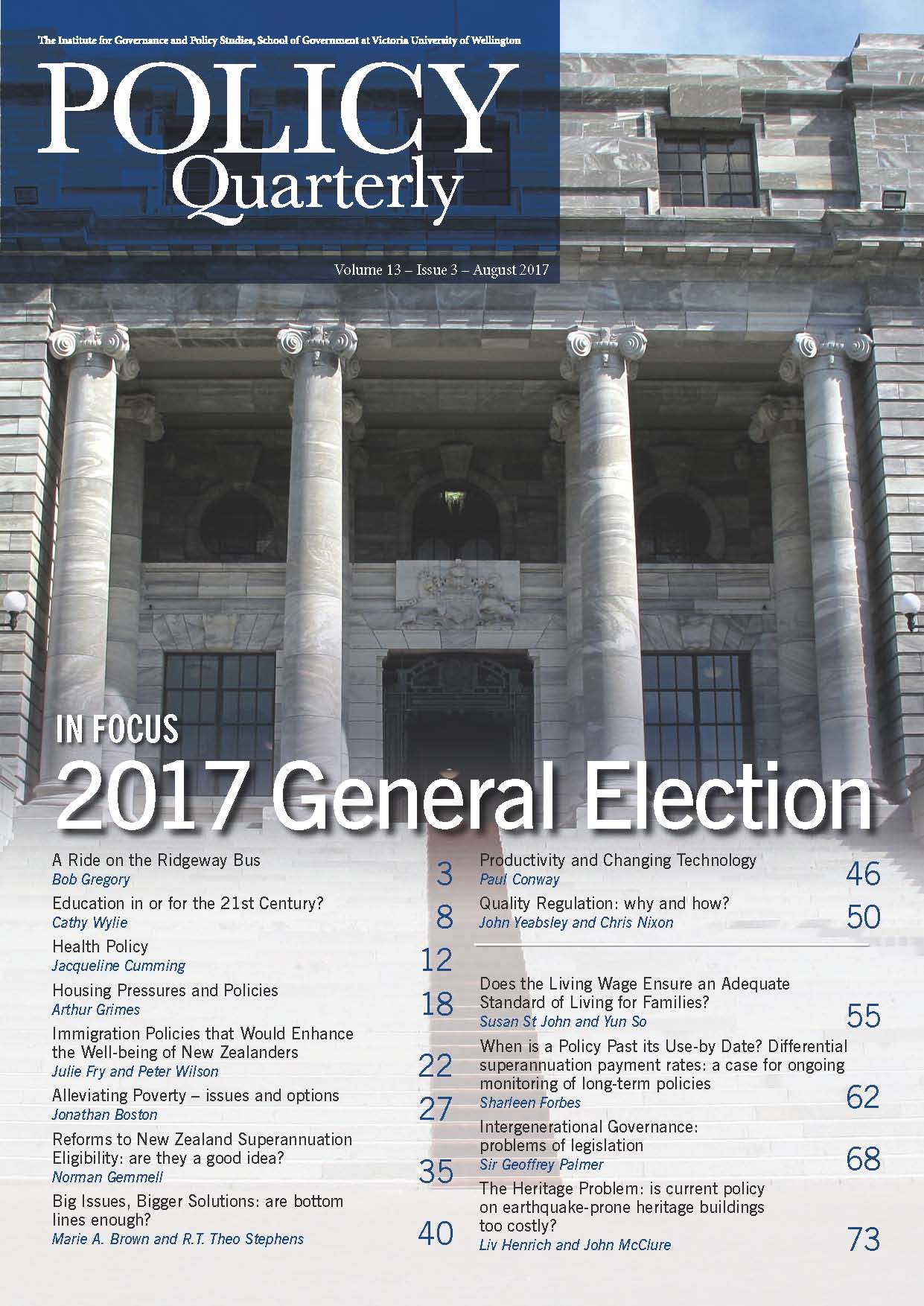Intergenerational governance: problems of legislation
DOI:
https://doi.org/10.26686/pq.v13i3.4669Keywords:
government decisionmaking systems, international law, common patrimony and intergenerational equity, environmental policy in New Zealand, climate change, Resource Management Act, State Sector Act, Legislative Council, culture of stewardshipAbstract
It is true to say that the language of politics is the language of priorities. Whatever else the Cabinet members do or do not do, they determine the priorities. They determine the order in which issues will be addressed and the resources that will be devoted to the issue. Many policies require legislation and the ministers, with the advice of public servants and the drafting of parliamentary counsel, design the legislation. Parliament passes the bills into law after select committee scrutiny. In the New Zealand democracy these ministers are connected to the voters through triennial general elections, voters to whom they are ultimately accountable through the institutions of representative democracy. Thus, ministers will be wary of public opinion and take it into account both in determining their priorities and in designing the legislation.
Downloads
Downloads
Published
Issue
Section
License
Permission: In the interest of promoting debate and wider dissemination, the IGPS encourages use of all or part of the articles appearing in PQ, where there is no element of commercial gain. Appropriate acknowledgement of both author and source should be made in all cases. Please direct requests for permission to reprint articles from this publication to Policy-Quarterly@vuw.ac.nz.



